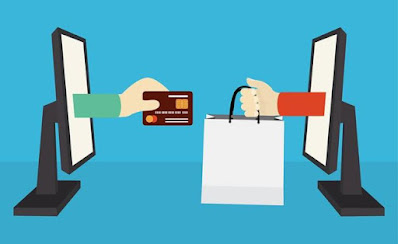Filenews 25 November 2020
The increased attention of consumers to avoid the risk of being deceived in their online purchases is being felt by banks in view of the increased transactions expected in the coming period, starting with the black friday, Cyber Monday on 30 November and the Christmas shopping season.
Worldwide, internet fraud costs citizens, and the economy in general, hundreds of millions of euros each year, in addition to the social and emotional damage they cause to their victims.
Internet scammers focus more on how to trick and deceive citizens than on hacking or hacking a bank or organisation's system.
For this reason, traders must have increased reflexes because they themselves risk causing their "luck" and being deceived by deft people, without being entitled to compensation from the Bank.
Useful advice from Mr. Ioannis Janos, Assistant Director General, Head of Corporate Security and Information Security Officer of the Eurobank Group, as well as Member of the Special Committee of the Association of Greek Banks for the Prevention and Treatment of Fraud in Payment Instruments and Systems.
Mr Janos describes the methods of deception and the dangers of unsuspecting online traders and highlights what to look out for.
Phishing
The most common cases of fraud are those of phishing or phishing, where fraudsters communicate with their victims mainly via email or SMS text message. They pretend to be from their bank and usually on the pretext of urgency for a "problem" with their accounts or cards, refer them to fake websites where they are asked to enter passwords in e-banking, credit card details, disposable codes to confirm transactions, so that fraudsters can then make illegal money transfers and purchases of goods over the internet.
Banks have repeatedly stressed that they never, for any reason and in any way (email, SMS, Viber, telephone) ask for e-banking codes and customers' card details.
Citizens should, inter alia:
When they receive disposable codes (via SMS or Viber) or push notifications on their mobile phone to confirm their transaction, carefully check their description and for what purpose it has been sent to them.
Observe the text for the style of the email or SMS and possible spelling or syntax errors.
Check the sender's actual email address by placing the cursor on it.
Confirm that they have visited their bank's official website (URL) and remember that banks will never and for no reason and in no way ask them for their codes.
Do not notify anyone and do not enter on unknown websites their e-banking codes (username and password) or card numbers.
Never answer calls or unknown messages requesting their account details and mobile phone number.
Online Shopping (Black Friday, Cyber Monday, Christmas)
Especially during this period, we should pay special attention to advertisements for outrageous offers or miracle products, via emails, online ads, posts on social networks, pop-ups while navigating.
Caution if these purchases are made only by depositing money into a bank account or through electronic money transfer services and almost never by cash on delivery or credit card. Traders must:
Make use, where possible, of domestic reliable and well-known online stores.
Research trusted online sources for reviews and recommendations from other customers who have already purchased from this online store.
Do not place orders from unknown online stores found in an email sent to them by an unknown sender
Avoid making purchases that require payment by bank transfer exclusively and do not accept payment by credit card or cash on delivery as a payment method.
Avoid giving a deposit for a deal with someone they met via email, online ad, posting on social networks.
The Money Mules
The "mules of money" are third parties who are deliberately or unwittingly used by internet scammers to transfer money. Traders should be careful not to accept to mediate as intermediaries for transferring money to third parties, taking in return a percentage of money as a commission. Never give details of their bank accounts (IBAN) to third parties unless they know and trust them.
Phone calls on the pretext of computer failure
Be careful if someone calls you from an unknown number and claims to be from a large IT company, without having previously reported a fault for your COMPUTER. Stop the call immediately because under the guise of repairing an alleged fault, you will be "associated" with personal data and steal your accounts.
E-mail payment requests
Be especially careful when receiving payment requests via e-mail. Always verify by phone with your vendor or customer that the payment request is valid and cross-reference the account number to which the money is to be credited by phone.
Source: Capital.gr
